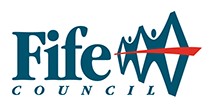Measures approved to tackle poverty in Glenrothes

Fife Council has approved a package of measures to tackle poverty in the Glenrothes area.
Together the measures will cost £132,000 and are being made in response to the conclusions and recommendations made in the Poverty Research report, ‘Work Together for a Common End’ by Professor Karen McArdle.
The investment will help support voluntary and community organisations, build community resilience and greater community involvement.
The recommendations include measures to:
- Develop localised micro funds to seed voluntary sector activity
- Design a Community Learning and Development Approach to Mental Health and Well-Being
- Provide opportunities for Reflection with the third sector at grassroots level
- Longitudinal Community Development (building and increasing work with community groups)
Part of the funding will be given to Positive You! a ‘social prescribing project’ run by the Glenrothes Community Learning and Development (CLD) which provides a community-based approach to mental health and wellbeing.
Despite the project being temporarily halted for a period due to the Covid-19 pandemic it still managed to work and support 64 people from April 2020 - March 2021.
Cllr Fiona Grant, convener of Fife Council’s Glenrothes area committee, said: After this challenging year (through the Covid-19 pandemic) the measures we are approving today will help support initiatives to rebuild community resilience through community engagement and development.
“Through Micro Funds (small grants for small-scale projects) community groups will be able to make a big difference to their communities and encourage community activism. Continued support for the Positive You! project will help improve people’s lives, and their mental health and wellbeing.
“In addition, through this investment we will develop new ways of working together. We want to help build community resilience and support community involvement for people to take collective action and generate solutions to common problems.
“The report shows that by pooling our resources, focusing on what is needed and working collaboratively and collectively we can make a difference to people’s lives.”









